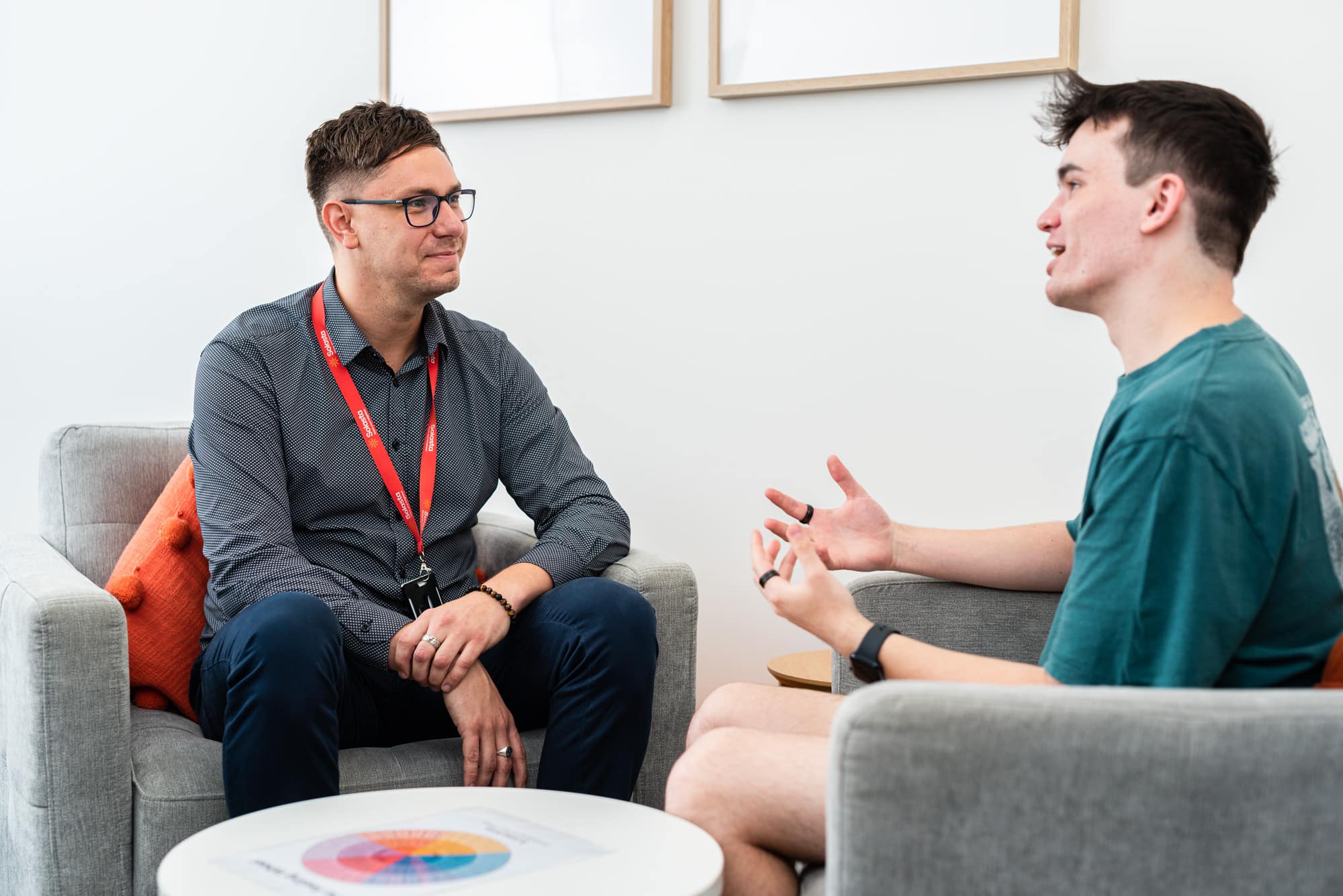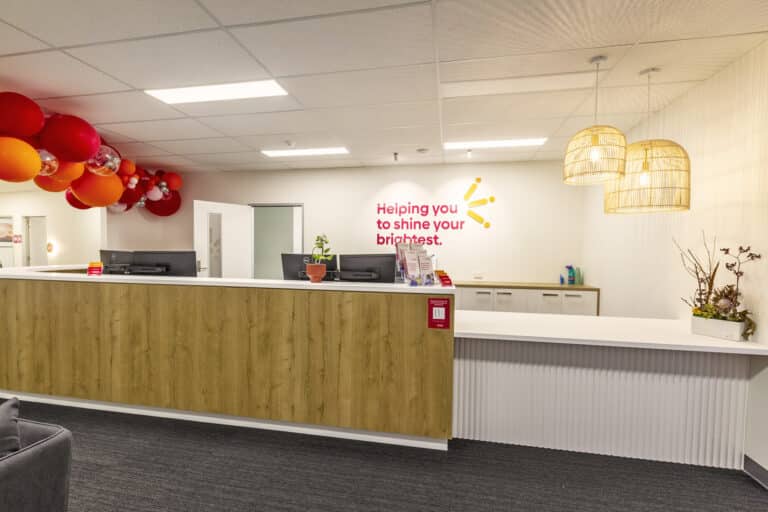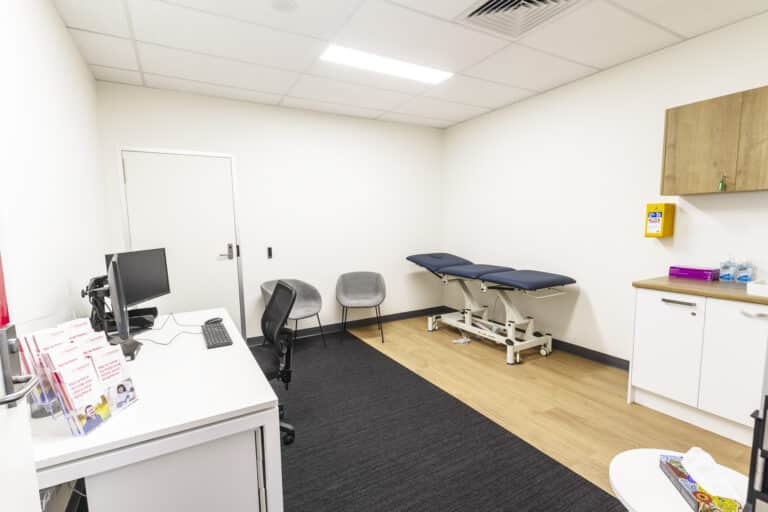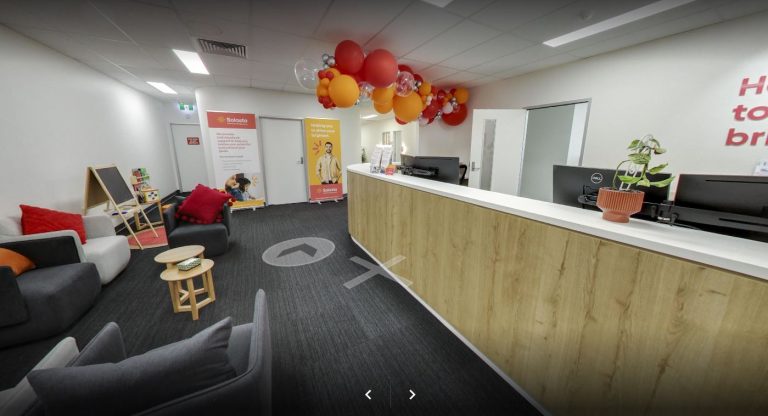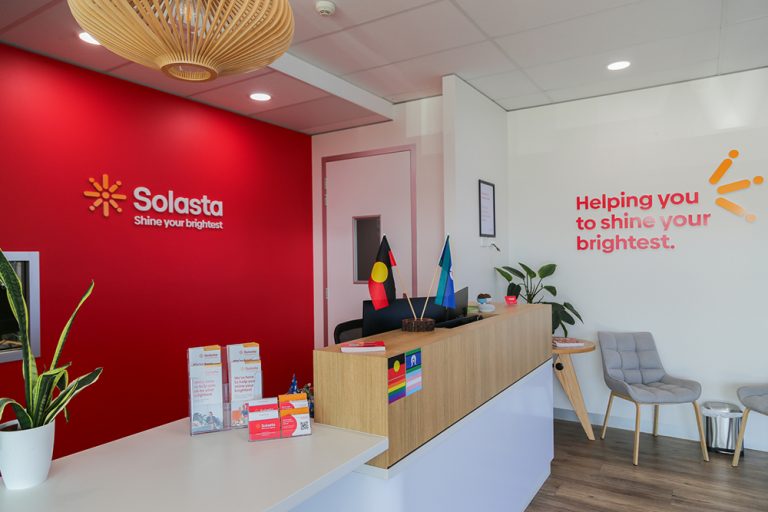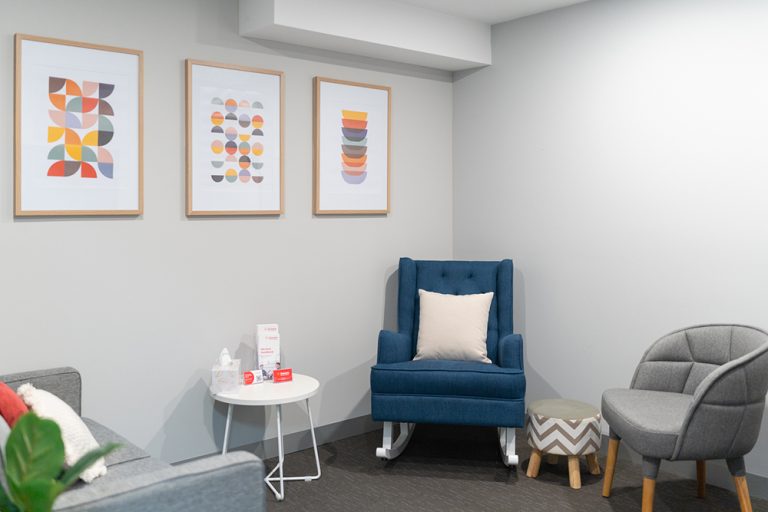Our skilled clinicians provide compassionate and evidence-based therapy for people experiencing trauma or Post-Traumatic Stress Disorder (PTSD).
If you or someone you care about has experienced trauma or been diagnosed with PTSD, help is available at Solasta.
Our clinicians are available at both our Klemzig and Christies Beach locations, or via telehealth to provide support, guidance, and practical tools for recovery.
Understanding trauma and PTSD
Trauma is the emotional, mental, and physical response to experiencing or witnessing distressing events, such as violence, serious accidents, assault, natural disasters, sudden loss of a loved one, serious illness or injury, and even prolonged stress.
While many people experience trauma in their lives, its impact can look very different for each person.
PTSD can develop in response to trauma. It involves ongoing symptoms that affect how a person feels, thinks, and responds to the world around them.
Trauma and PTSD are not signs of weakness, they are natural responses to overwhelming events and with the right support, recovery is possible.

Common signs of trauma and PTSD
In children and young people:
- Nightmares, flashbacks, or distressing memories of the event.
- Reenacting the trauma through play.
- Avoidance of reminders of the trauma.
- Irritability, anger, or sudden mood changes.
- Trouble concentrating or sleeping.
- Physical symptoms such as headaches or stomachaches.
- Withdrawal from friends or family.
- Clinginess or regression to earlier behaviours (e.g. language or bedwetting).
In adults:
- Persistent intrusive memories or flashbacks.
- Heightened anxiety or feeling “on edge”.
- Emotional numbness or detachment.
- Avoidance of places, situations, or conversations linked to the trauma.
- Sleep disturbances, including insomnia or nightmares.
- Difficulty trusting others or maintaining relationships.
- Feelings of guilt, shame, or hopelessness.
Recognising these signs is an important first step towards seeking help.
How we can help
At Solasta, we offer trauma-informed and compassionate therapy for people of all ages. Our highly skilled clinicians use evidence-based approaches, including Trauma-Focused Cognitive Behavioural Therapy (TF-CBT), Eye Movement Desensitisation and Reprocessing (EMDR), Cognitive Processing Therapy (CPT), and other evidence-based therapies to support trauma and PTSD recovery.
We create a safe and supportive environment where every individual feels heard, respected, and empowered.
Therapy is tailored to each person’s needs, focusing on building coping strategies, processing difficult memories, and restoring a sense of safety and control.
What trauma & PTSD therapy involves
At Solasta, our therapy process typically includes:
1. Initial consultation: A first session to understand your history and current challenges.
2. Tailored plan: We’ll work together to develop a trauma/PTSD treatment plan designed around your needs.
3. Therapy: We’ll use evidence-based methods such as EMDR, TF-CBT, or CPT that are appropriate to your unique needs.
4. Ongoing support: Regular sessions to build resilience, learn coping skills, and manage triggers.
5. Review and recommendations: Together, we’ll assess your progress and identify ongoing strategies to support long-term wellbeing. Everyone’s journey with trauma is unique. Therapy is adapted to each person’s pace, goals, and preferences, ensuring support is both effective and compassionate.
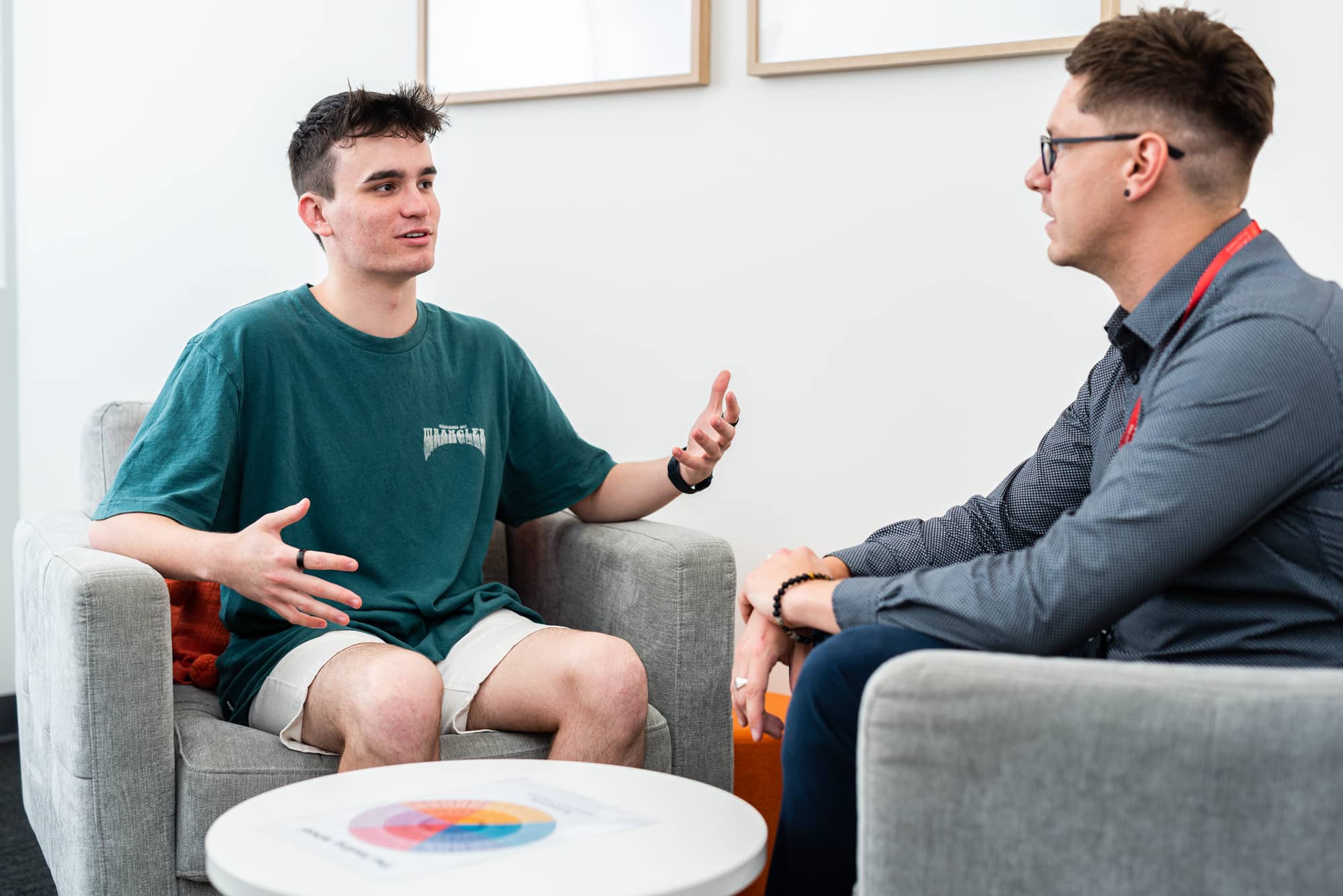
Our approach
At Solasta, we understand the importance of a strong connection between you and your clinician where you feel understood.
For this reason, our team take care to link you with a clinician who is best suited to your needs and preferences and who you will connect with.
Our clinicians are committed to a person-led approach, ensuring that you are at the centre of all our services. To achieve this, your clinician will focus on your strengths and work with you to build the skills you need to achieve your goals.
During your time at Solasta, you will always feel safe, listened to, respected and supported.

Ready to get started?
Simply fill out our appointment request form and we’ll be in touch.
If you have any questions, we encourage you to contact the team on 1800 943 043 or at info@solasta.net.au.
Frequently asked questions
What is PTSD?
Post-Traumatic Stress Disorder (PTSD) is a mental health condition that can develop after experiencing or witnessing a traumatic event. Symptoms can include flashbacks, nightmares, avoidance, and heightened anxiety. PTSD is treatable, and many people recover with the right support.
Do I need a diagnosis to access trauma therapy?
No, you don’t need a formal diagnosis of PTSD. Many people seek support for difficult life events, ongoing stress, or unresolved trauma. Our clinicians will tailor support to your needs.
How does trauma therapy help?
Trauma therapy gives you a safe space to process distressing experiences, work towards reducing symptoms, and build coping skills. Approaches like EMDR, TF-CBT, and CPT can help reframe memories and restore a sense of safety.
What happens at the first appointment?
Before your first appointment starts, you may be asked to complete a registration form. At your first appointment the clinician will explain what to expect from psychological therapy, as well as important things such as record keeping, confidentiality, and communication with your GP or other health providers.
The first appointment is an opportunity for you and your psychologist to get to know each other and discuss the reasons you have decided to start therapy. Your clinician will develop a thorough understanding of your issues or concerns and any relevant history such as your family, social relationships, and work history. They will also work with you to develop goals and a plan for your therapy.
How long does trauma therapy take?
The length of therapy varies depending on your goals, history, and the type of support needed. Some people feel improvements after a few sessions, while others benefit from longer-term therapy. Your clinician will work with you to review progress and adjust the plan as needed.
Is trauma therapy confidential?
Yes, all sessions are private and confidential. Information you share is treated with respect and only disclosed with your permission, except in situations where there are safety concerns, such as risk of harm to yourself or others.
Can children and teenagers access PTSD therapy?
Yes, our clinicians are trained to support adults, young people, and children who may be experiencing mental health challenges after a traumatic experience. Therapy is adapted to the individual’s age, developmental stage, and unique needs, and can involve family members or guardians where appropriate.
Do you offer trauma therapy in Adelaide?
Yes, we provide trauma and PTSD therapy in Adelaide across our two sites in Klemzig and Christies Beach. Some trauma therapies can also be delivered via telehealth. You can explore our Solasta centres below, so you know what to expect at an appointment.
Do I need a referral to access therapy for trauma or PTSD?
No, you do not need a referral to see a clinician. You can request an appointment without a referral.
However, if you are wishing to access Medicare rebates, you will require a written referral addressed to Solasta from your doctor, along with a Mental Health Treatment Plan.
For more information about Medicare rebates and other funding options, visit our Funding Options and Fees webpage.
What if it’s urgent?
Solasta is not a crisis service, however we do understand that during difficult periods you may require a more urgent appointment to support you. We will do our best to accommodate this if possible. Please notify us when you call to make an appointment that you would like to see someone urgently. We will then do our best to book you in at an earlier time to better meet your needs or put you on a cancellation list.
In the case of an emergency where you or someone you are with is at immediate risk, please call 000 or go to your local hospital emergency department. For more information about crisis support, visit our Crisis Support webpage.
Our clinicians who provide trauma & PTSD therapy
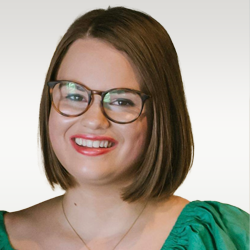 Madeline Rac
Registered Psychologist
Klemzig
Madeline Rac
Registered Psychologist
Klemzig
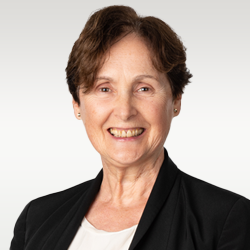 Emer Dunne
Clinical Psychologist
Christies Beach
Emer Dunne
Clinical Psychologist
Christies Beach
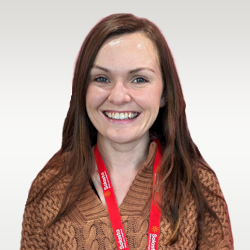 Roisin Thomson
Clinical Psychologist
Christies Beach
Roisin Thomson
Clinical Psychologist
Christies Beach
 Jake Slack
Registered Psychologist
Klemzig
Jake Slack
Registered Psychologist
Klemzig
 Justine Cooney
Registered Psychologist
Christies Beach
Justine Cooney
Registered Psychologist
Christies Beach
 Madelaine de Valle
Clinical Psychologist
Klemzig
Madelaine de Valle
Clinical Psychologist
Klemzig
 Lisa Chisholm
Clinical Psychologist
Klemzig & Christies Beach
Lisa Chisholm
Clinical Psychologist
Klemzig & Christies Beach
 Priya Sandanapitchai
Registered Psychologist
Klemzig
Priya Sandanapitchai
Registered Psychologist
Klemzig

Madeline is a dedicated Registered Psychologist, having earned her Master of Professional Psychology from Flinders University in 2023, alongside a Bachelor of Behavioural Science (Psychology) and Honours Degree in Psychology.
Madeline brings a wealth of experience to her practice, having worked in child protection settings in regional North Queensland, as well as private practice and not-for-profit organisations where she provided assessments and therapy to individuals with traumatic and acquired brain injuries.
At Solasta, Madeline provides compassionate and non-judgemental psychological therapy to children, young people and adults facing a broad spectrum of challenges including anxiety, depression, stress, phobias, trauma, and emotional regulation difficulties. Drawing upon evidence-based approaches, including Cognitive Behavioural Therapy, elements of Schema Therapy, and mindfulness-based techniques, Madeline tailors her methods to suit individual needs. Eager to expand her repertoire, Madeline is currently undergoing training in Acceptance and Commitment Therapy (ACT) and Dialectical Behaviour Therapy (DBT).
In addition to her therapeutic work, Madeline also offers psychoeducational assessments for children, and cognititive assessments (for NDIS applications for assessment and diagnosis of intellectual disability) and ADHD assessments for adults.
As a member of the Australian Psychological Society (APS), Madeline is committed to upholding the highest standards of ethical practice and remains committed to her ongoing professional development.

Emer is a Clinical Psychologist with a diverse background spanning various settings and sectors, both in Australia and overseas. Emer has extensive experience working with individuals across the lifespan, from children and adolescents to adults.
Throughout her career, Emer has demonstrated a strong commitment to supporting vulnerable populations, having worked in child protection, disability services, and educational environments. She has navigated various settings including government agencies, non-profit organisations, general practices, and most recently, the private sector.
An experienced leader, Emer has also previously managed a clinical internship program and a suicide prevention initiative.
At Solasta, Emer provides psychological therapy for adults experiencing a broad spectrum of challenges such as attachment-related issues, trauma (including PTSD and complex PTSD), anxiety and depression, emotional dysregulation, bipolar disorder, borderline personality disorder, obsessive compulsive disorder, and grief and loss. Emer’s therapeutic approaches include Cognitive Behavioural Therapy, Acceptance and Commitment Therapy, Schema Therapy and EMDR, tailored to meet each client's unique needs.
Known for her compassionate approach, Emer collaborates with her clients to empower them on their journey towards achieving their goals. She is registered with AHPRA and holds endorsement as a Clinical Psychologist, in addition to serving as an AHPRA Board Approved Supervisor, offering guidance to psychologists seeking clinical endorsement. Emer is also a member of the Australian Psychological Society and a Fellow of the APS College of Clinical Psychologists.

Roisin is a compassionate psychologist known for her genuine warmth and dedication to providing therapy to individuals of all ages, including children, adolescents, adults, and families. She is deeply committed to building strong relationships with her clients, creating a safe, open, and non-judgmental space for them throughout therapy.
With a particular passion for working with children, adolescents, and parents facing complex mental health challenges, including those who have experienced trauma or complex trauma, Roisin brings a wealth of experience to her practice. She has worked extensively in child protection settings, including family preservation and reunification services, both in South Australia and Tasmania. Additionally, Roisin has worked with young people struggling with complex mental health issues and has provided support to adults in both inpatient and outpatient facilities.
Roisin draws upon a diverse range of evidence-based therapeutic approaches, including Cognitive Behaviour Therapy (CBT), Acceptance and Commitment Therapy (ACT), Dialectical Behaviour Therapy (DBT), Schema Therapy, Cognitive Processing Therapy for PTSD (CPT), Motivational Interviewing, and mindfulness-based approaches. She believes in tailoring treatment to the unique needs of each individual, fostering a flexible and collaborative approach to therapy.
With an Honours degree in Psychology and a Master of Clinical Psychology, Roisin holds general registration as a psychologist with the Psychology Board of Australia. She is currently completing her clinical registrar program to become endorsed as a clinical psychologist. Roisin is an active member of the Australian Psychological Society (APS). You can find her practicing at Solasta Christies Beach on Mondays and Tuesdays.

Jake is a Registered Psychologist dedicated to supporting young people to navigate life’s challenges and improve their mental wellbeing.
His passion for mental health led him to pursue a career in psychology, driven by a desire to make a meaningful impact in people's lives. While completing his studies, Jake gained valuable experience as a Behaviour Support Practitioner and Support Worker, broadening his understanding of mental health care across different settings. Through this work, he recognised the linkage between psychological wellbeing and physical wellbeing, motivating him to further his training in Clinical Psychology.
Jake has worked in both not-for-profit and private practice settings, providing psychological assessments and therapy in both individual and group formats. He incorporates evidence-based approaches, including Cognitive Behavioural Therapy and Dialectical Behaviour Therapy, to tailor therapy to each client’s unique needs.
With a client-first approach, Jake creates a compassionate, inclusive space where individuals feel heard and supported. His focus is on equipping clients with practical skills to manage their mental health effectively and build resilience for the future.

Justine is a dedicated and compassionate psychologist who prioritises building strong therapeutic relationships and creating a safe and supportive space for clients to navigate life’s challenges. Justine's approach is tailored to meet the unique needs of each individual. She understands the profound influence of early experiences on life patterns and their connection to emotional regulation difficulties, stress, anxiety, depression, and interpersonal difficulties.
With extensive experience across diverse sectors, Justine has worked in public mental health settings, rural and remote communities and private organisations. She has experience in conducting neurodevelopmental assessments for both children and adults and brings a well-rounded perspective to her practice.
She is committed to delivering evidence-based therapy to adults (18+) experiencing depression, stress, anxiety, trauma, and relationship or workplace conflict. Drawing on Cognitive Behavioural Therapy, Acceptance and Commitment Therapy, Schema Therapy, and mindfulness practices, she adapts her approach to meet each client’s needs.
With a flexible, client-centered approach, Justine emphasises goal setting from the very beginning of therapy, working collaboratively with clients to achieve meaningful outcomes.

Madelaine is a Clinical Psychologist who works with adults and young people aged 16 and over. Her approach incorporates humour, teamwork, and skills-building to help people become their own therapist, empowering individuals to develop resilience against future challenges.
With an interest in addressing concerns such as anxiety, perfectionism, posttraumatic stress disorder (PTSD), body image, emotion regulation, stress, and self-esteem, Madelaine employs a range of evidence-based therapeutic modalities, including Cognitive Behaviour Therapy (CBT), Acceptance and Commitment Therapy (ACT), Cognitive Processing Therapy (CPT), and Dialectical Behaviour Therapy (DBT).
As a Credentialed Eating Disorder Clinician, Madelaine has undergone specific training in interventions including Enhanced Cognitive Behaviour Therapy (CBT-E), its briefer and more focused alternative (CBT-T), and Cognitive-Behavioural Guided Self-Help (CBT-GSH) to support individuals experiencing eating disorders and disordered eating. Madelaine does not treat avoidant/restrictive food intake disorder, individuals with a body mass index below 16, pica, or rumination disorder, nor does she offer family-based therapy.
As a scientist-practitioner, Madelaine holds a PhD in Clinical Psychology. She maintains both research and clinical roles, enabling her to stay up to date on the latest psychological evidence. Her research focusses on areas such as perfectionism, body image, and eating disorders, whilst Madelaine’s clinical background has included roles in both public and private sectors, facilitating both individual and group therapy.

Lisa is a Clinical Psychologist who provides assessment and therapy services to adults and children. She has extensive experience in providing a range of psychological services to individuals, families, schools and organisations. Lisa also has experience working in child protection, family reunification, and youth homelessness settings.
Lisa works in a collaborative and non-judgemental manner and is passionate about working with adolescents and adults to improve their wellbeing. In addition, she frequently provides training and support to families, teachers, support staff and other allied health professionals. Lisa regularly conducts comprehensive psychoeducational assessments for people experiencing learning difficulties, and to diagnose conditions such as intellectual disability, specific learning disorders and ADHD. She also conducts assessments for autism spectrum disorder.
She has a particular interest in supporting adolescents to understand and manage their mental health and improve their wellbeing. She also has an interest and experience in helping her clients to recover from traumatic and adverse life experiences, and supporting neurodiverse and sexuality and gender diverse people.
Lisa completed her Honours in Psychology and Master of Psychology (Clinical) at Flinders University.
She has undertaken specialist training in Family Systems Therapy, Acceptance and Commitment Therapy, Narrative Therapy, Cognitive Processing Therapy, Schema Therapy, and Child and Adolescent Psychology.
She is registered with the Psychology Board of Australia with Clinical Endorsement.

Priya works with people of all ages and backgrounds, and is particularly passionate about supporting adolescents and adults living with posttraumatic stress disorder (PTSD) and complex PTSD. She also works with individuals experiencing anxiety, depression, phobias, interpersonal challenges, perfectionism, body image concerns, and emotional or behavioural difficulties. Priya is a qualified Cognitive Processing Therapy (CPT) provider and incorporates CBT, DBT, and ACT into her practice.
Priya’s passion for expanding access to trauma interventions is reflected in her PhD in Clinical Psychology, during which she investigated a guided self-help model of CPT for adults with PTSD. Building on her Master’s and Bachelor’s degrees, she is now completing the Clinical Registrar Program, steadily progressing toward endorsement as a Clinical Psychologist.
With a career spanning NGOs, community mental health, public sector, teaching, and research, Priya has worked in Sri Lanka, the United States, and Australia. These diverse experiences have deepened her commitment to culturally responsive, trauma-informed, and neuroaffirming practice.
At the heart of Priya’s work is her belief that therapy should feel safe, collaborative, and human. She aims to create a space where people feel truly heard, respected, and valued, bringing warmth, curiosity, and a gentle sense of humour to every session.
Alongside her work, Priya remains actively engaged in research and teaching, and is a proud member of the APS and the International Society for Traumatic Stress Studies (ISTSS).
Our space
Get a sense of what attending an appointment at Solasta would feel like.
We offer a carefully designed, modern and inviting therapy space. Our spacious, light-filled rooms create an environment that allows for safety, privacy and growth. From the waiting room to your time in our therapy rooms, we have consciously created an enriched space to support your sense of comfort.
For children, we also have rooms specifically designed to accommodate sensory needs, complete with toys, soft lighting and thoughtfully selected furnishings to create a calming environment.
Explore the photos of our space below or check-out our virtual tour.
Klemzig
Healing takes time, and asking for help is a courageous step.

